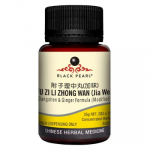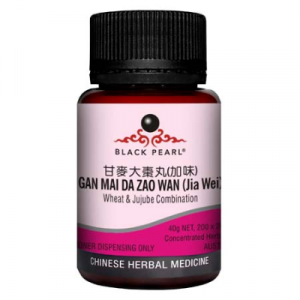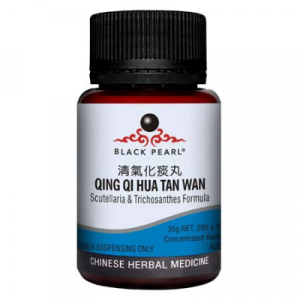Indication
This formula is from the ‘Formulary of the Tai Ping Welfare Dispensary Bureau’ (tai ping hui min he ji ju fang) (1151 CE), a compilation of popular and effective formulas that were used in the public dispensaries of the Song dynastic period. It is a variant on Li Zhong Wan (Formula to Regulate the Middle [Jiao]) from the ‘Treatise on Cold-induced Diseases’ (shang han lun), by Zhang Zhong-jing (circa 150 – 219 C.E.), which was originally used for disorders characterised by acute onset vomiting with diarrhoea (huo luan) due to Cold; for Greater Yin (tai yin) syndrome; as well as Cold in the chest during recovery from a chronic illness with spitting of fluids.
Over the centuries the clinical uses of this formula have been expanded to include a broad range of disorders characterised by deficiency-Cold of the Spleen and Stomach, as listed above. Thus the key clinical features for the application of this formula centre on Spleen & Stomach Qi deficiency together with signs of Yang deficiency. When the Spleen Yang is deficient the ascending movement of the Spleen Qi fails to send the clear Yang Qi upwards. This leads to watery diarrhoea; failure of the Stomach functions leads to nausea or vomiting (i.e. the turbid Yin is not sent downwards).
The presence of Cold in the middle Jiao retards the circulation of the Qi and Blood leading to stagnation, manifesting clinically with epigastric or abdominal pain that is aggravated by the application of cold but alleviated by warmth and pressure (i.e. massage). In addition there are systemic signs of Cold, i.e. cold extremities.
The addition of Aconite root (fu zi) enhances the original formula’s interior Warming and Cold dispelling actions. Due to restrictions on the use of this ingredient by the Australian Therapeutic Goods Administration (TGA), Myristica seed (rou dou kou) and Tetradium fruit (wu zhu yu) are used together in this formula to substitute for the desired effects.
The synergistic actions of the ingredients are as follows:
Codonopsis root (dang shen), Atractylodes rhizome (bai zhu), Glycyrrhiza root (gan cao): tonify the Spleen Qi.
Zingiber rhizome (gan jiang), Myristica seed (rou dou kou), Tetradium fruit (wu zhu yu): warm the middle Jiao and dispel Cold.
Myristica seed (rou dou kou): warms the middle Jiao, moves the Qi and alleviates pain; astringes the intestines and relieves diarrhoea.
Tetradium fruit (wu zhu yu): warms the middle Jiao, moves the Qi and alleviates pain; redirects the Stomach Qi downwards and alleviates vomiting; warms the Spleen, expels Cold-Damp and relieves diarrhoea.
Glycyrrhiza root (gan cao): harmonises the formula and protects the body from the Drying action of the Interior Warming herbs.
Signs & Symptoms:
Dysentery, chronic
Duodenal ulcer
Functional uterine bleeding
Gastric ulcer
Gastroenteritis, acute and chronic
Gastroptosis
Irritable bowel syndrome
Colitis, ulcerative
Crohn’s disease
Ulcer, aphthous (mouth)
Herpes, oral
Cold sores
Bronchitis, chronic
Dysfunctional uterine bleeding
Diarrhea or loose stools, chronic
Nausea or vomiting
Poor appetite
Hypothyroidism
Digestion, poor
Malabsorption syndrome
Gastritis
Combinations –
Diarrhoea, chronic or early morning:
BA JI YIN YANG WAN
ZHUANG YANG YI JING WAN
YOU GUI WAN
Diarrhoea, chronic or IBS:
CHAI HU SHU GAN WAN
fluid retention:
WU LING SAN
Kidney Yang deficiency:
FU GUI BA WEI WAN
REHMANNIA EIGHT VITALITY Formula
Thyroid hypofunction:
YOU GUI WAN
TCM Syndromes: Spleen-Stomach deficiency-Cold (middle Jiao Yang deficiency), Cold stagnation of the middle Jiao.
TCM Actions: Warm-tonifies the middle Jiao (i.e. Spleen & Stomach), dispels Cold (from the middle Jiao).









Reviews
There are no reviews yet.